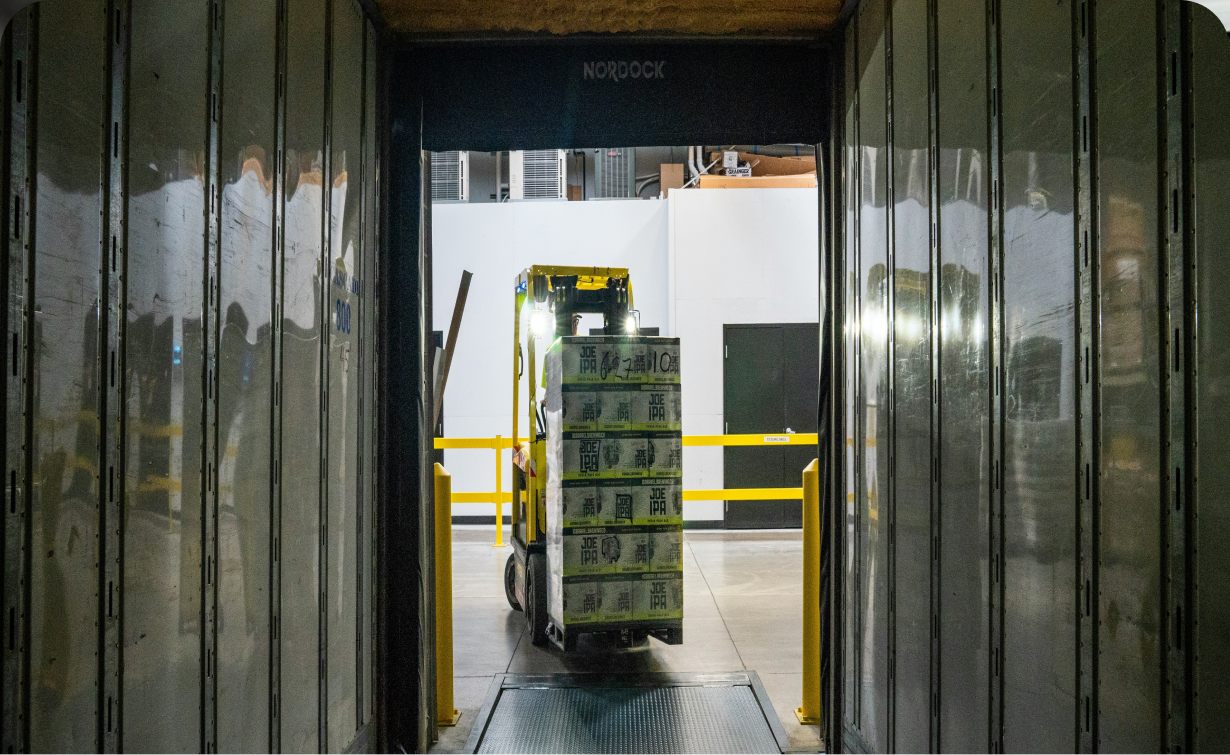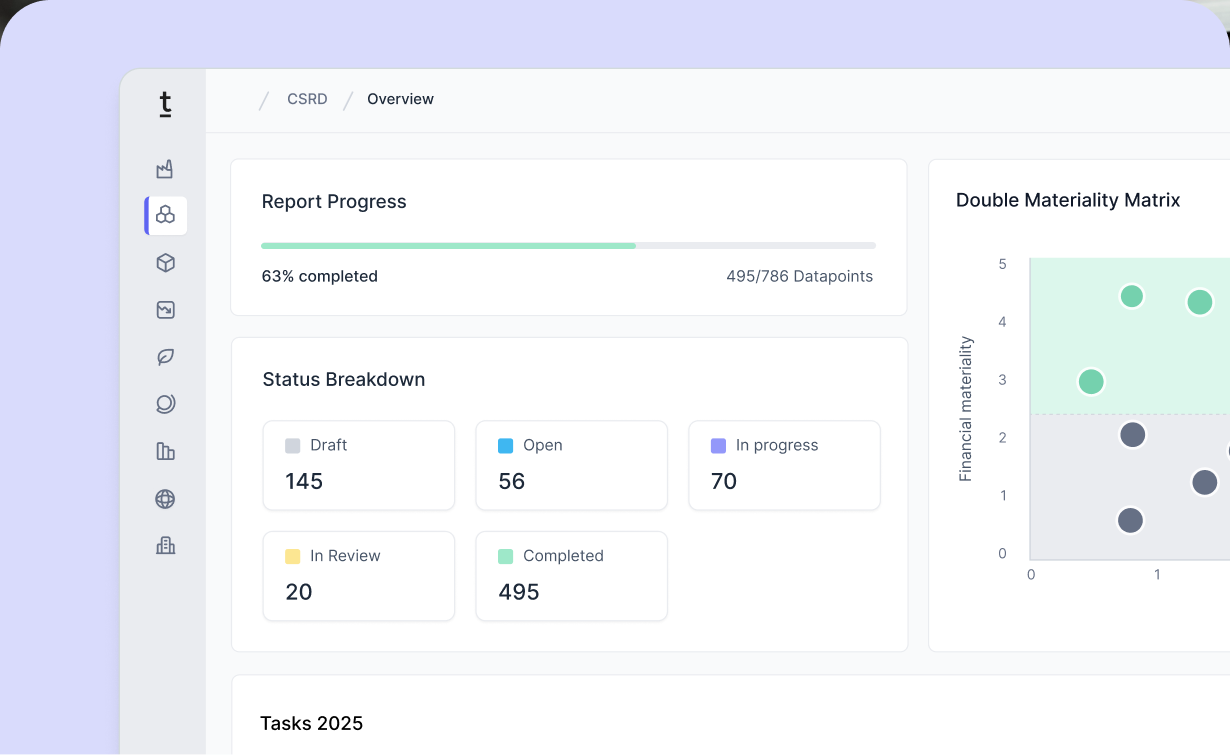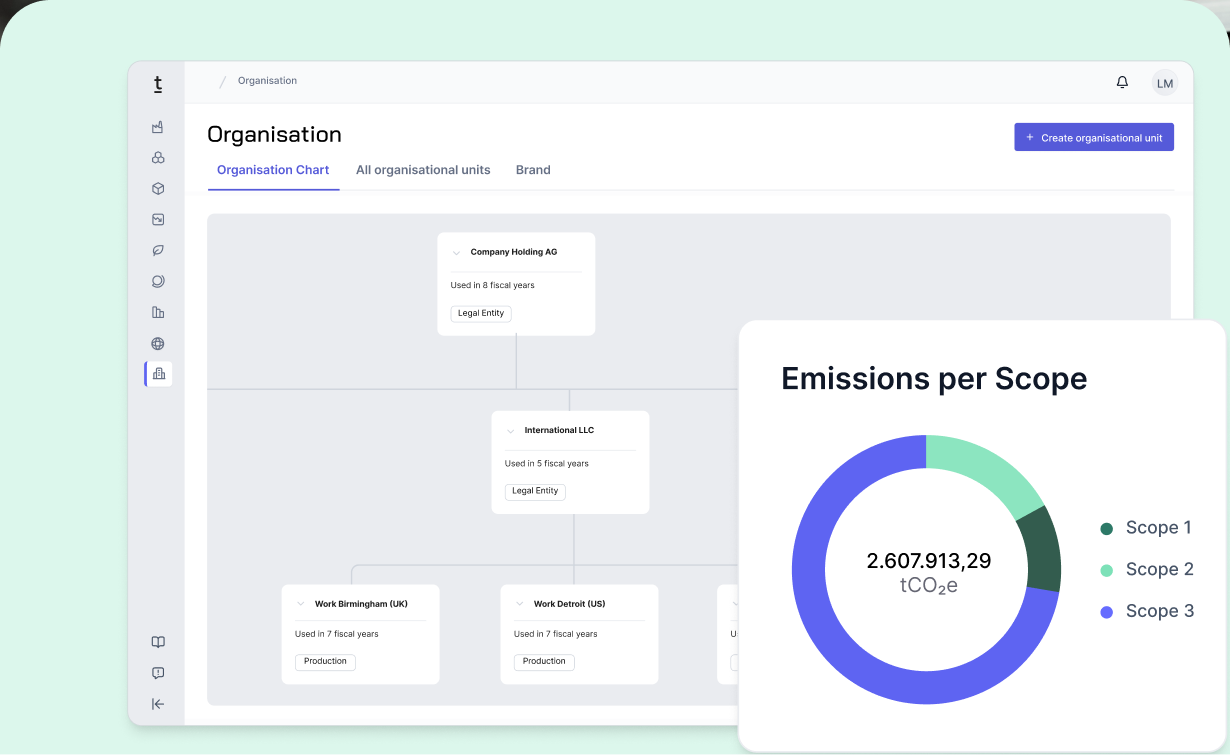Efficient PCF calculation at FEP
.jpg)
For FEP, sustainability is not a challenge, but a lived reality. In addition to recording the Corporate Carbon Footprint (CCF), calculating the Product Carbon Footprint (PCF) plays a central role - especially in order to respond to customer inquiries accurately. As the previous approaches to PCF calculation were not scalable, FEP was looking for an efficient and future-proof solution to make this process sustainable.
About FEP
FEP Fahrzeugelektrik Pirna has been an integral part of the automotive industry for more than 70 years and is an experienced manufacturer and development supplier for plastic electrical connectors, switching and sensor elements and other plastic components in the vehicle electrical system architecture. With sites in Germany, China and Mexico, the company has established itself as an internationally active supplier and development partner with in-depth expertise.
Initial situation and measures in the area of sustainability
As part of the Amphenol Group, FEP is strongly focused on dedication, responsibility and sustainability. The company is committed to a code of conduct that encompasses environmental protection, ethical behavior and social responsibility. Carbon accounting is an important part of the sustainability strategy. FEP not only calculates the Corporate Carbon Footprint (CCF), but also the Product Carbon Footprint (PCF) of individual products. This has enabled the company to meet increasing customer requirements since 2023 and create transparency about the carbon footprint of its products.
Challenges

Why Tanso
Following a comprehensive internal analysis of various tool providers for recording PCF data, FEP opted for Tanso. In the selection process, the calculations of the product carbon footprint were compared with the previous Excel solution and an open LCA tool. The software impressed with a methodology that fully meets FEP's specific requirements. It enables a scalable PCF calculation, uses synergies from the CCF calculation and at the same time offers comprehensive analysis and optimization options. With functions such as the automatic mapping of emission factors and conformity with ISO 14067, the software meets increasing customer requirements for reliable and verifiable data - far beyond the possibilities of manual approaches.

Results achieved with the Tanso software
Since the introduction of the Tanso software, FEP has made significant progress in carbon accounting. The precise and efficient data collection and the sophisticated automation functions have significantly reduced the workload and considerably accelerated the processes. In particular, the combination of fast data entry, automatic assignment of suitable emission factors and an intuitive PCF module have made a significant contribution to optimization.
Key achievements:

Further advantages such as easy duplication of similar PCFs, a clearly structured PDF export and comprehensive methodology support make Tanso a valuable tool for FEP's sustainability strategy.

Outlook
FEP is vigorously pursuing the implementation of its sustainability strategy and is focusing on ambitious targets. These include compliance with statutory reporting obligations, including the EU Taxonomy, CSRD and CBAM, as well as the implementation of targeted measures to reduce greenhouse gas emissions.
The company is also driving the development of carbon-neutral products and increasingly integrating recycled materials into production in order to conserve resources and promote the circular economy. In addition, FEP is optimizing the energy efficiency of its processes through continuous energy-saving measures.













































.avif)







.jpg)
.jpg)




















-p-800.webp.avif)
-min-p-800.webp.avif)






-p-800.webp.avif)

